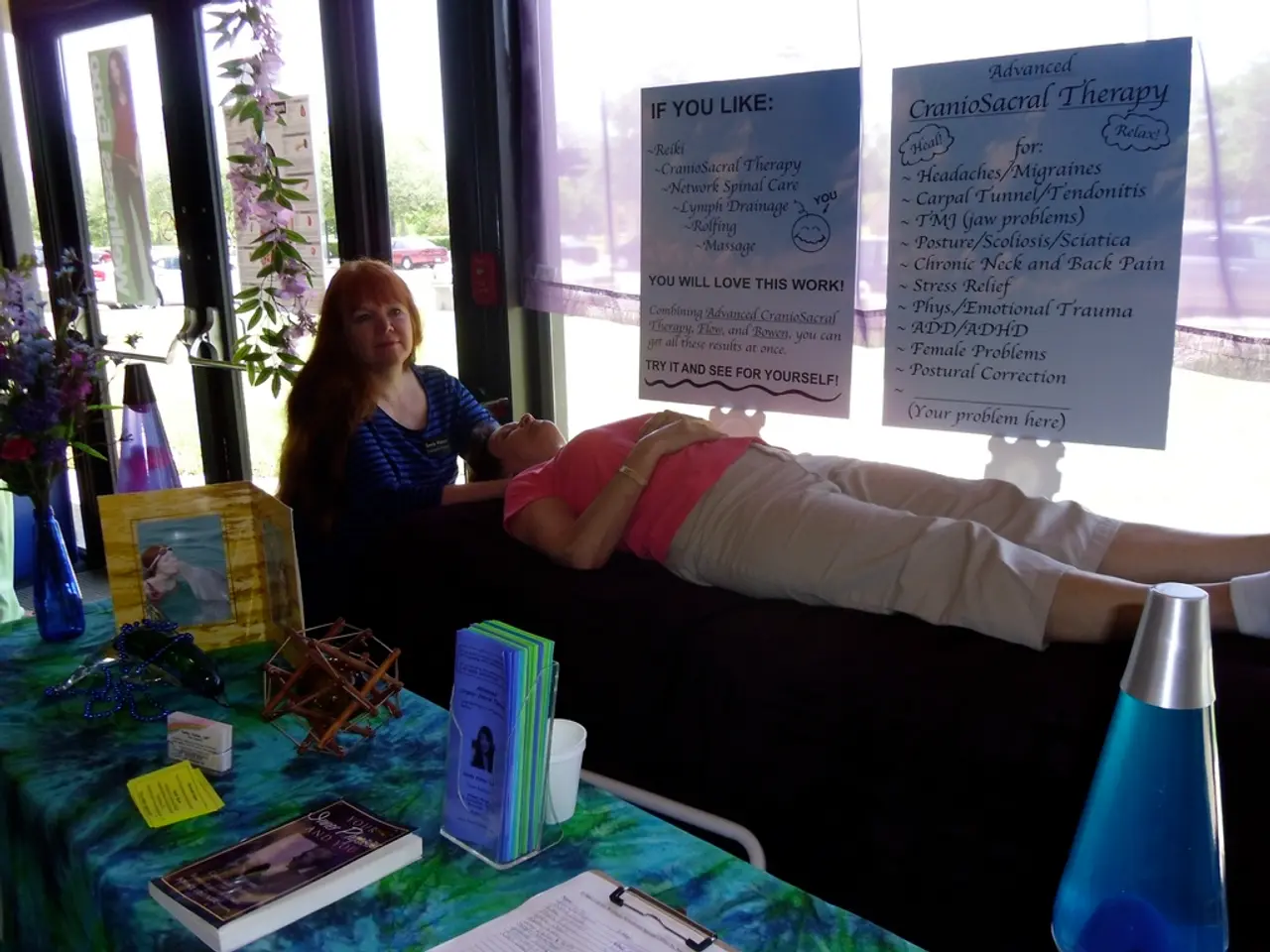Smart Drugs Explored: Classification, Safety Concerns, and Potential Hazards
In the realm of cognitive enhancement, a growing number of individuals are turning to nootropics – substances that are claimed to boost brain performance, often referred to as cognition enhancers or memory-enhancing substances. While these substances can offer potential benefits, the long-term effects of their use in individuals without a medical need are not yet fully established.
Some nootropics, such as Bacopa monnieri and PQQ (pyrroloquinoline quinone), have shown evidence of long-term neuroprotective and cognitive enhancement effects when taken consistently for months. Users have reported improved memory consolidation and sustained peak cognitive performance after around 10-12 months of use. However, these effects may reflect lasting positive changes in brain structure and function, especially in aging populations[3].
On the other hand, the use of nootropics carries uncertain risks, particularly when it comes to long-term use. Some users experience side effects like brain fog, headaches, and metabolic disruptions, especially when the brain's natural neurotransmitter systems are overstimulated or imbalanced. Users often mitigate these by supplementing with supportive nutrients like choline donors[1].
Individuals without medical needs but with underlying psychiatric conditions or those taking neurological/psychiatric medications are at heightened risk of negative interactions, including worsening symptoms, neurotransmitter imbalances, and serious complications like serotonin syndrome. This underscores the importance of cautious and informed use[4].
Nootropics are generally suited for short-term cognitive boosts, providing immediate effects. In contrast, adaptogens, a different class of cognitive enhancers, are more suited for gradual, long-term support with lower risk. Long-term nootropic use requires careful consideration, ongoing monitoring, and lifestyle optimization to maintain benefits and minimize risks[2].
The benefits and risks of long-term nootropic use depend heavily on individual factors such as age, genetic makeup, baseline cognitive function, lifestyle habits, stress, sleep quality, and overall health. Younger users may experience faster benefits, whereas older users might see more pronounced long-term improvements with consistent use[3].
The Food and Drug Administration (FDA) recommends that people consume no more than 400 milligrams of caffeine per day. However, when it comes to nootropics, the FDA does not approve dietary supplements for safety and effectiveness before they go on the market, so caution should be exercised when buying them.
Prescription nootropics, such as modafinil (Provigil), Adderall, methylphenidate (Ritalin), and memantine (Namenda), are medications that have stimulant effects and are used to treat health conditions such as ADHD, narcolepsy, or Alzheimer's disease. Over-the-counter nootropics refer to natural or synthetic supplements that boost mental performance.
While the benefits of nootropics may be temporary, substances like L-theanine, an amino acid found in black and green teas, may support cognition and reduce stress in adults. Creatine, an amino acid, appears to help with short-term memory and reasoning, but its effects on the brain beyond that are unclear.
In summary, while some nootropics show promise for long-term cognitive enhancement, their use in healthy individuals carries uncertain risks. Long-term benefits appear more reliably with specific natural compounds and when combined with healthy lifestyle practices. However, people without medical needs should use nootropics cautiously, ideally under expert guidance, to avoid unintended adverse effects and ensure safe, effective use.
Key precautions include avoiding nootropics if you have psychiatric conditions or take psychiatric medications without medical supervision, starting with low doses and monitoring for side effects, supporting nootropic use with proper nutrition and lifestyle habits, and considering adaptogens for long-term cognitive and stress management benefits if gradual improvement is acceptable. The best way to boost brain function remains adequate sleep, regular exercise, a balanced diet, and managing stress.
- In the growing field of health-and-wellness, multiple substances known as nootropics are being utilized, aiming to enhance brain performance and cognition.
- Some nootropics, such as Bacopa monnieri and PQQ, exhibit long-term neuroprotective effects and cognitive enhancement over several months, leading to improved memory consolidation.
- However, the long-term use of nootropics can carry uncertain risks, including negative interactions for individuals with underlying mental health conditions or those on neurological/psychiatric medication.
- Prescription nootropics, like modafinil, Adderall, and Ritalin, are used to treat conditions such as ADHD, narcolepsy, or Alzheimer's disease, while over-the-counter nootropics are supplements that boost mental performance.
- Substances like L-theanine and creatine have shown potential for cognitive support and reduction of stress, but their long-term effects on the brain remain unclear.
- To ensure safe, effective use of nootropics, key precautions include avoiding them if one has psychiatric conditions or is on psychiatric medication without medical supervision, starting with low doses and monitoring for side effects, and supporting their use with proper nutrition and lifestyle habits.
- Adhering to the time-tested methods of boosting brain function, such as adequate sleep, regular exercise, a balanced diet, and managing stress, remains the best way to maintain overall mental health, as supported by science and predictive mental health research.




